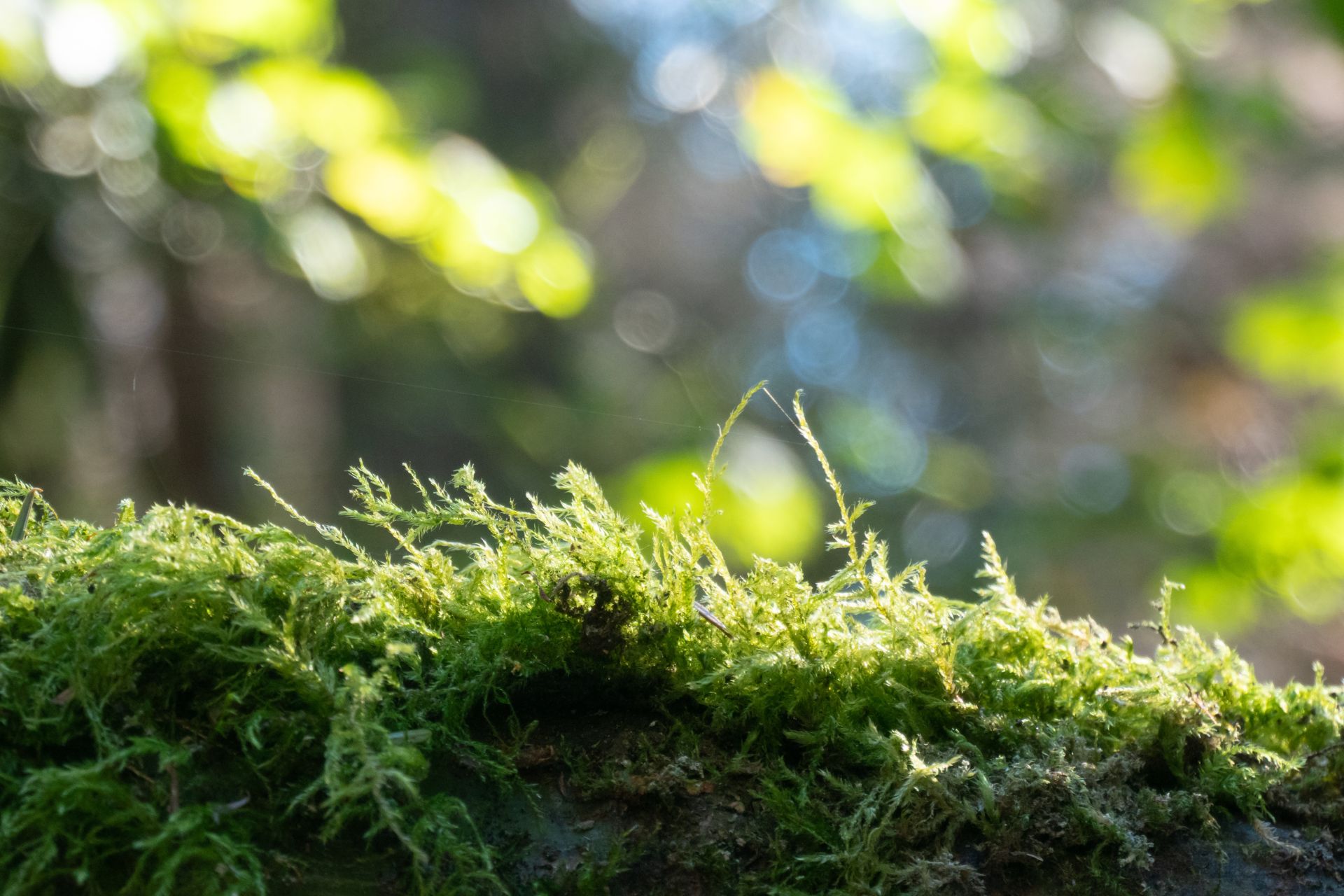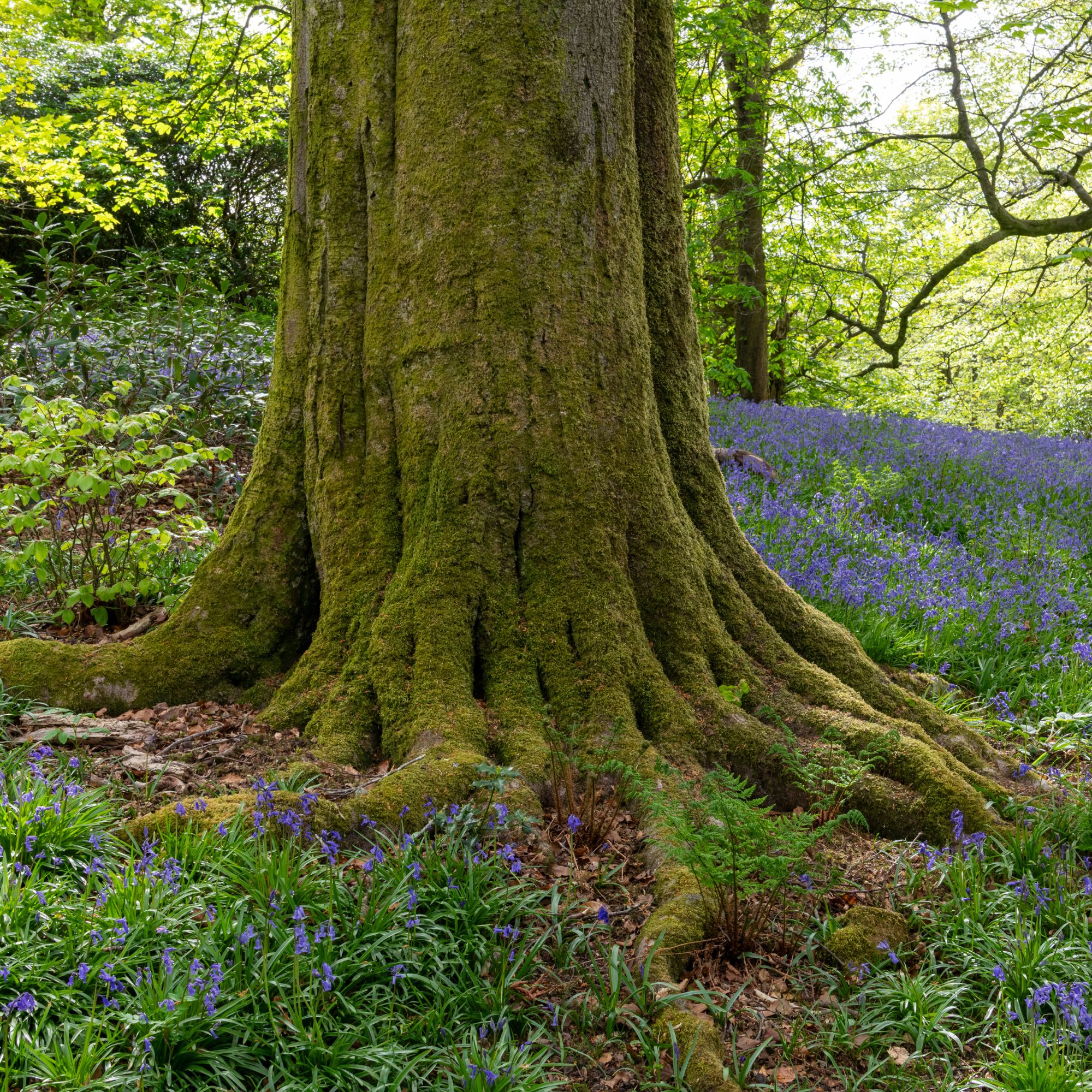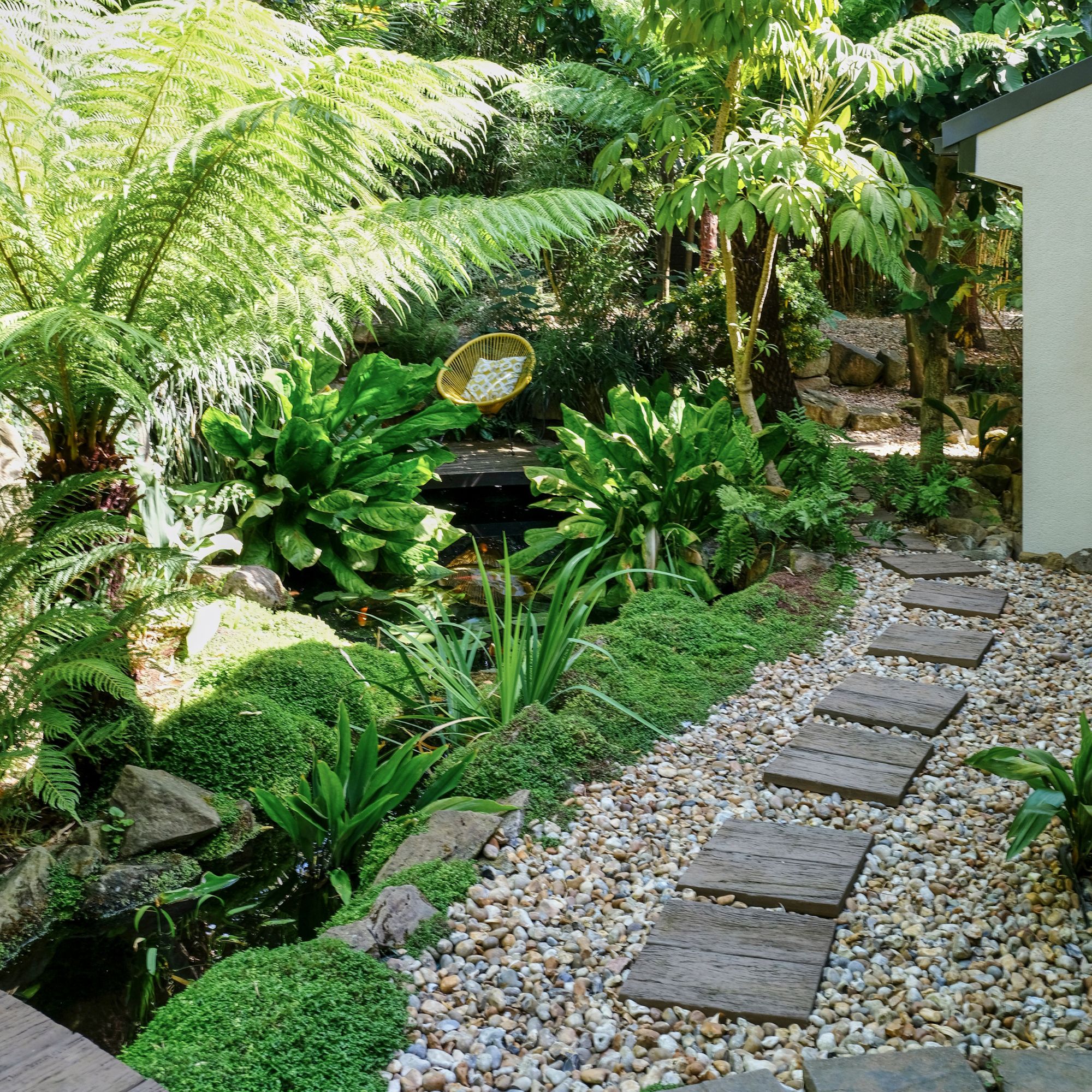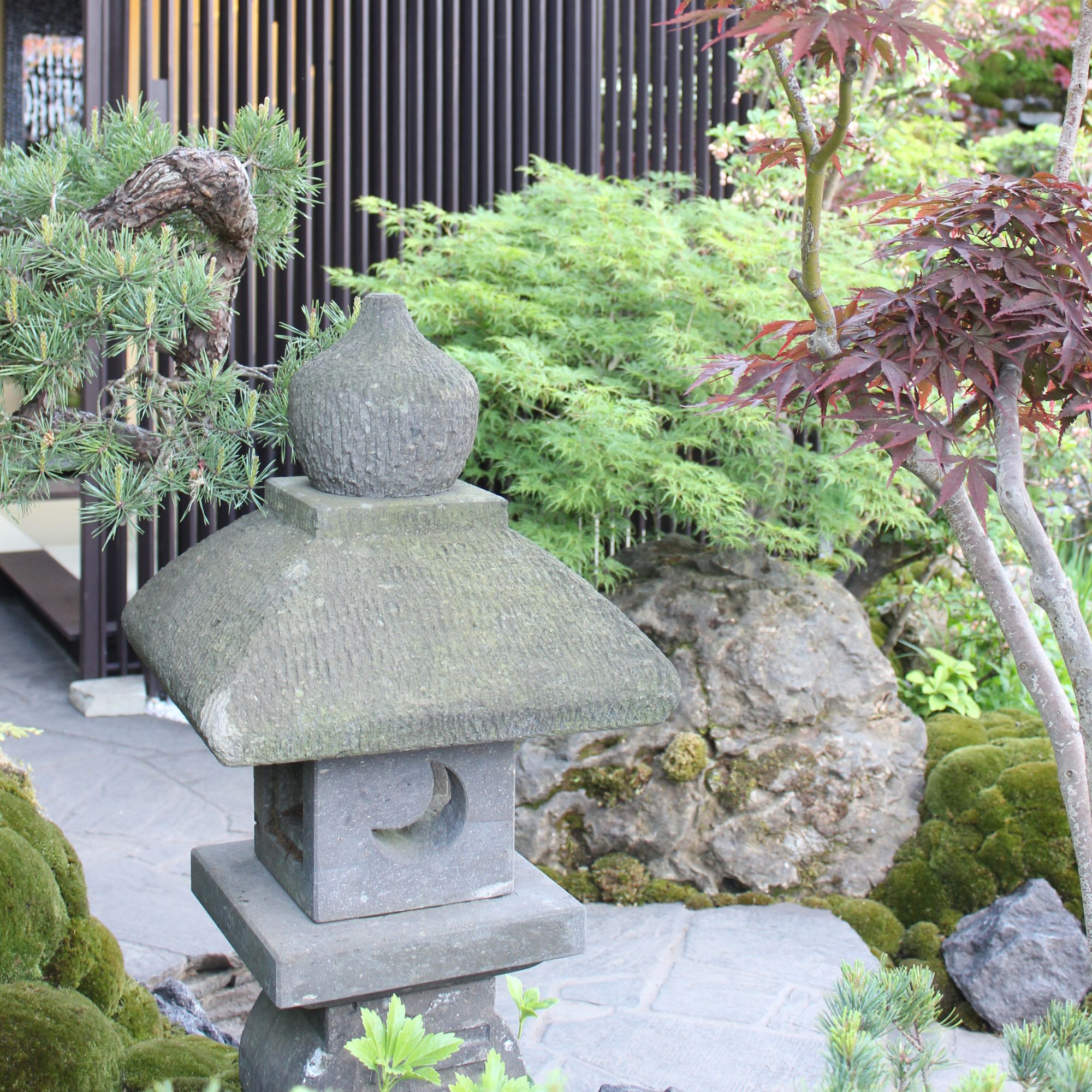The surprising benefits of moss – this plant has a bad rep, but experts say it’s your new garden must-have
Stop trying to figure out how to remove it, and make it the star of the show instead…


Remember when Bridget Jones thought Mark Darcy was the villain – right up until the very end of the first film? Well, thanks to the surprising benefits of moss, this often-maligned garden plant follows the same redemptive character arc.
Once written off as a nuisance (or a sign of poor lawn drainage), moss is having something of a moment. In fact, whether it’s stealing the spotlight at RHS Chelsea or adding some fairy-like wonder to a woodland garden, this ancient plant is proving itself to be a star performer. And not just visually, but ecologically too.
This means that, while many gardeners have historically tried to eradicate moss in favour of a perfect lawn, experts now say it’s time we gave moss the respect it deserves.
Benefits of moss
Moss, moss, glorious moss! Not only is it low maintenance and resilient, but this super plant also supports biodiversity, prevents soil erosion, and looks beautiful to boot.
Let’s dive into the benefits of moss...
1. It’s a brilliant lawn alternative
If you’ve got a shaded or north-facing garden where grass struggles to grow, moss might just be your new best friend.
‘Once established, moss basically looks after itself in the right conditions – so no mowing, no feeding, and no faff,” explains garden designer Zoe Claymoree, who made moss the centrepiece of the British Rainforest Garden, aka her show garden for RHS Chelsea Flower Show 2025.
Sign up to our newsletter for style inspiration, real homes, project and garden advice and shopping know-how

Zoe Claymore is a multi award-winning garden designer based in London. She focuses on creating outdoor places with emotional connection and ecological integrity for her private and commercial clients.
‘It can save you time, money and energy if your garden stays damp enough to support it,’ she says, adding that moss is surprisingly soothing too.
‘Green is the calmest colour for the brain, so it’s lovely to look at. And its soft texture has a relaxing effect as well.’
2. It boosts biodiversity
If you’re wondering about the benefits of moss, how about the fact that this plant isn’t just a pretty face? It’s a mini ecosystem, too.
‘It provides shelter for small invertebrates, amphibians and fungi,’ says Zoe. ‘That means it supports key elements of a healthy garden and helps reduce soil erosion, acting like a sponge during downpours.’

The Wildlife Trusts’ British rainforest programme manager, Stan Smith, agrees.
‘Mosses are brilliant unsung heroes of the natural world, providing many benefits both in gardens and in special habitats like temperate rainforests and peat bogs,’ he says.
‘Even common types of mosses contribute to healthy ecosystems, providing a source of food, shelter and nesting materials for wildlife such as songbirds, invertebrates and voles.’
3. It’s low maintenance and sustainable
Because moss doesn’t have roots, it doesn’t need soil to thrive – just a cool, damp environment. That makes it ideal for awkward garden spots or even vertical gardens and living wall displays. It also means you don’t need to rely on fertilisers or harsh chemicals.
‘Moss requires no food or chemicals to grow, so it’s super sustainable,’ says Zoe. ‘It’s a gentle way to green up your space, no matter the size.’

4. It can improve water retention
With hotter summers meaning that hosepipe bans are ever looming now and in the future, it’s important to consider plants that can boost water retention in your garden. Plants like (surprise!) moss.
‘Mosses are incredibly good at keeping areas moist because they act like sponges holding many times their own weight in water,’ says Stan.
‘This allows the right conditions for wet-loving plants to grow and bog species to thrive, as well as providing a buffer in times of drought or extreme rainfall by holding that water and releasing it slowly.’

5. It looks magical
The many benefits of moss aren’t the only reasons it has become a favourite among show garden designers; it also adds instant visual impact. In fact, with its lush texture and vibrant colour, it softens hard landscaping, and lends a fairy garden vibe to shady corners.
It is also one of the best ground cover plants to suppress weeds, which we’re big fans of!
6. It connects us to nature (and deep time)
Moss has been around for millions of years, having evolved from ancestral green algae. It plays a vital role in ecosystems, from retaining water to creating habitats, and in the garden, it offers a simple way to reconnect with the natural world.
‘Moss is easy to use; you can create a Japanese-style moss lawn, attach it to logs, or even use it in container gardens,’ says Zoe. ‘I’ve shared three fun moss projects in my ‘Breath Rainforest’ how-to guide, which also includes a 15% discount code for Highland Moss so you can source it sustainably.’

FAQs
How is moss beneficial to humans?
There are many ways in which moss is beneficial to humans. Indeed, from ‘improved water retention and quality to increased soil health and diversity of species coming to visit this mini ecosystem’, Stan Smith of The Wildlife Trusts notes that the charity’s recent rainforest garden at RHS Chelsea showcased ‘the wonderful ways you can bring mosses into any garden and that gardeners can rightly be proud of their mossy patches’.
‘Gardeners can also be mindful to only select peat-free compost in order to help keep these vital peatlands in good condition,’ he adds.
What are the benefits of mosses?
From absorbing water to purifying the air, not to mention reducing soil erosion, the benefits of mosses are becoming more and more apparent – especially as our climate continues to warm.
‘These extremes are likely to become more frequent, and so mosses such as sphagnum moss have an even greater role to play in helping to slow the flow of water, reduce flooding and storing carbon in peat bogs and rainforests across the UK,’ says Stan Smith of The Wildlife Trusts.
‘We’ve been working hard to restore these special habitats in places like Cumbria and Devon to help tackle climate change and safeguard the species that call these mossy landscapes home,’ he continues, ‘but in embracing moss in your garden, you can reap many benefits, too.’
And there we have it: the benefits of moss vastly outweigh the negatives, so it's well worth making like Cynthia Erivo and Ariana Grande and start (ahem) holding space for it in your garden.
Good luck!

Kayleigh Dray became Ideal Home’s Acting Content Editor in the spring of 2023, and is very excited to get to work. She joins the team after a decade-long career working as a journalist and editor across a number of leading lifestyle brands, both in-house and as a freelancer.